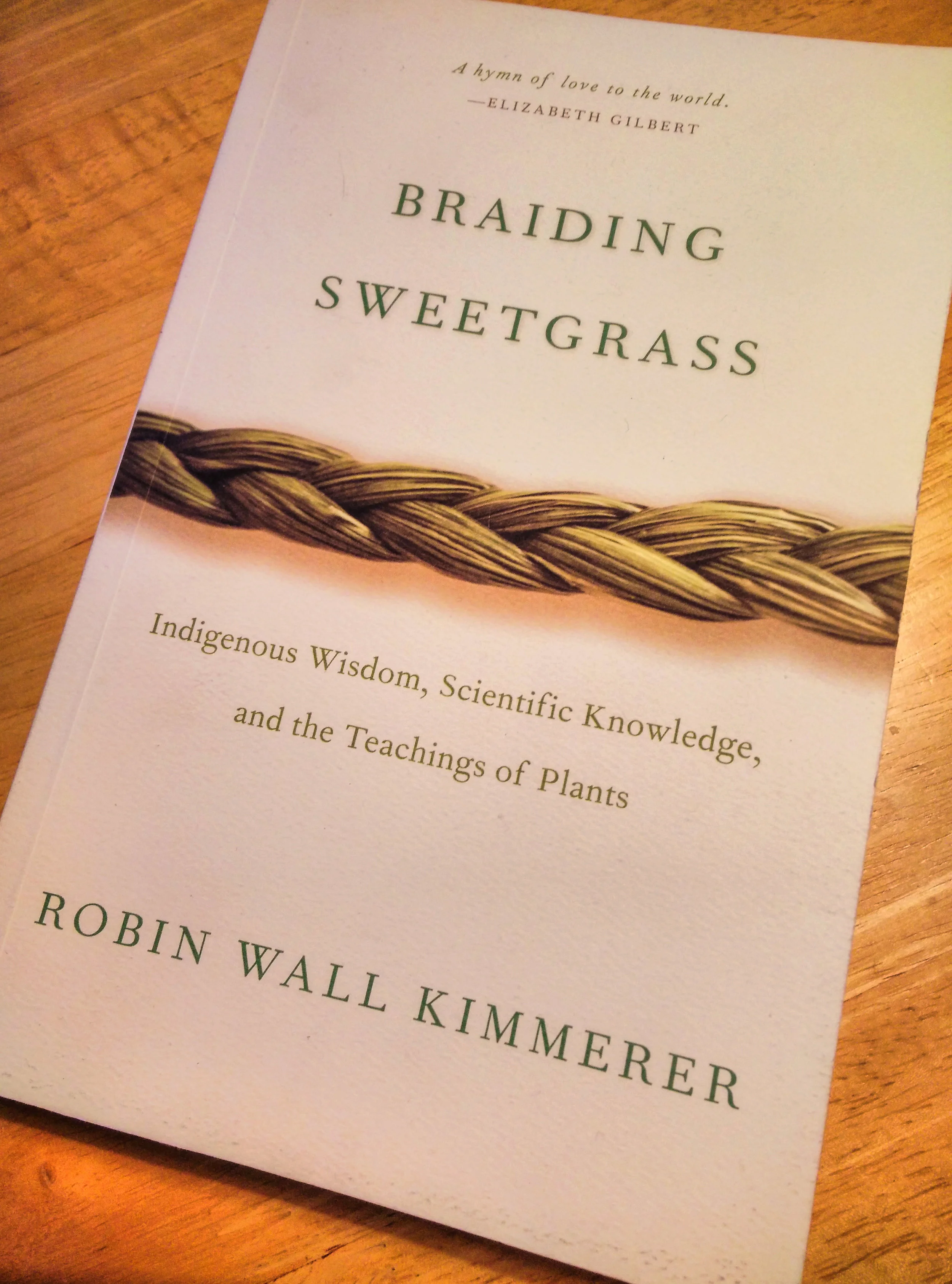Book Review: Braiding Sweetgrass by Robin Wall Kimmerer
I recently finished reading Braiding Sweetgrass - Indigenous Wisdom, Scientific Knowledge, and the Teachings of Plants by Pottawatomi first nations woman, mother, botanist, and professor, Robin Wall Kimmerer.
To be completely honest, I actually mostly listened to the book in audio format while driving between home, work, family, and friends - time definitely well spent - I could easily enjoy listening to Robin speak for hours on end! Her students are so incredibly lucky to have such a well-spoken lecturer. I managed to make some notes in the margins along the way, but will definitely be re-reading this book at some point in the hopefully-not-too-distant future.
The way Robin weaves together the three strands of indigenous wisdom, scientific knowledge, and the teachings of plants blew my mind and melted my heart. I can't recommend this book highly enough!
I like to think that Robin and I have a few things in common - we are both women, both trained botanists and lovers of plants, and both interested in learning more about our cultural heritage. Most significantly, we have both experienced a significant shift in our way of thinking - away from seeing science as The Way and towards a realization that there are many different frameworks and perspectives of great value through which one can view the world.
The entire book is definitely worth a read (or a listen!) but here I have tried to pull out a few of my most favourite take-away gems.
Expression of gratitude is of the utmost importance.
As Robin discusses everything from the gift of strawberries to the Haudenosaunee Thanksgiving Address, to the tenets of The Honourable Harvest, it quickly becomes obvious that the more gratitude we can find in our daily lives, the better the world will be for it. Expressing gratitude outwardly not only benefits those who we thank, but also uplifts our own spirits and helps us shift away from always wanting more.
Reciprocity comes naturally when we can recognize our talents as gifts to be given.
In sharing a story about a class trip she once led into a marsh, Robin reminisces in the unfolding of her students self-led discussion on reciprocity. They wondered, since the plants were there and giving freely of their sturdy stalks, fleshy fruit, and various other useful parts, was it necessary to give anything back? The idea of reciprocity towards the natural world has often felt elusive to me, but I found so much inspiration in the creativity of the students - each discovering their own gifts and tangible capacity to give.
There is room in this world for greater weaving together of cultures.
There is a near constant flow of new studies and documentaries appearing on the issues of environmental degradation and health problems facing our planet and the people on it. Clearly, some of the ways that industrialized nations have been doing things for the past hundred years or more are simply put, just not sustainable. Robin's work truly feels like a bridge between worlds. I hope that her way of weaving together the understandings of different cultures to create a more full understanding of the world can be adopted by more people and brought forward in the ways we educate our children, build our communities, and plan our policies.
I have really adored this book and can say with confidence that there are many more important lessons to be learned inside its pages than what I have lightly summed and skimmed through here - perhaps another blog post is in order down the line! If you are reading Braiding Sweetgrass too, I would love to hear about your favourite take away lessons, and gems. Please share your thoughts in the comments below!

